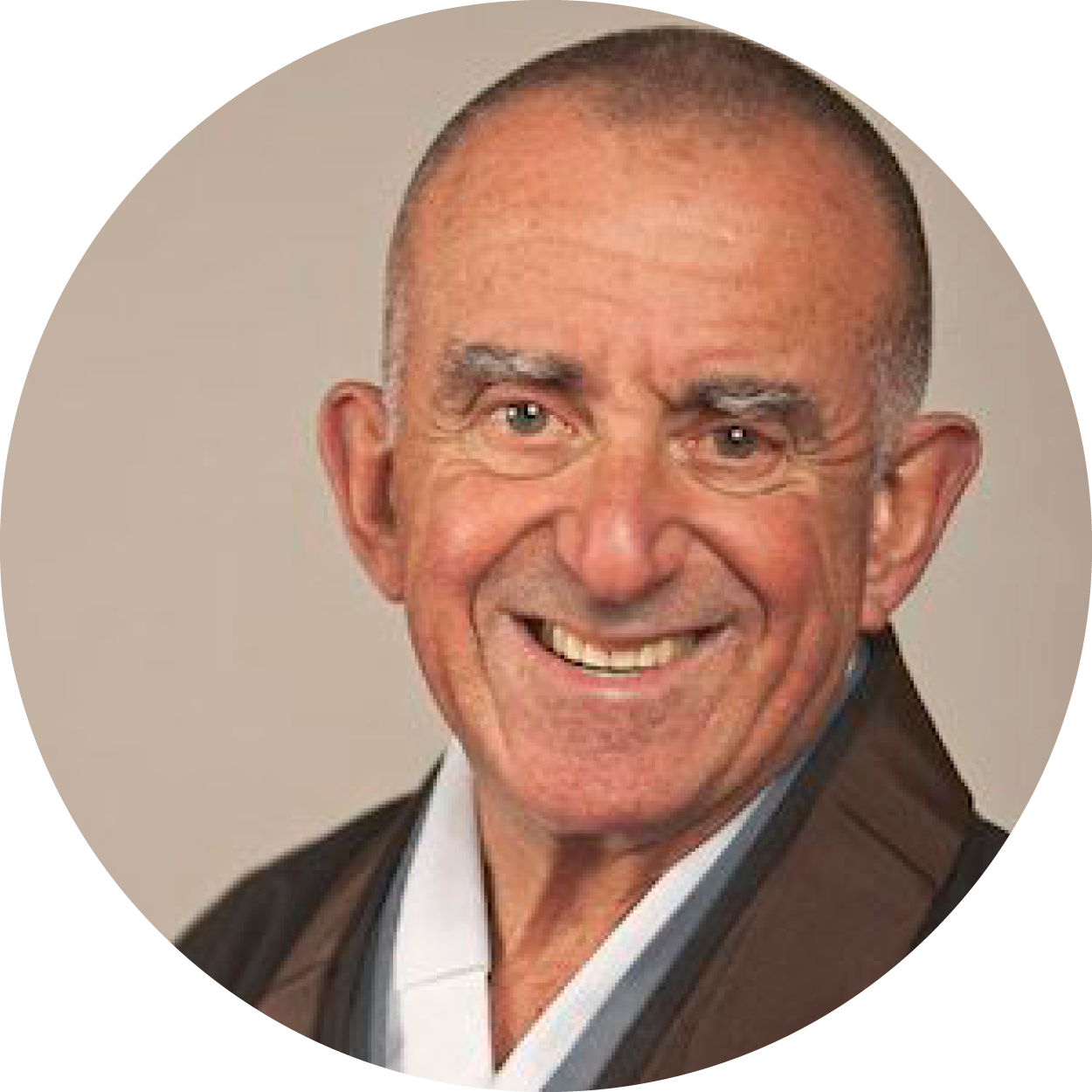Practicing Suzuki Roshi’s Way of Zen
Les Kaye
Foreword by Norman Fischer
Paperback
978-1-958972-80-9
US $19.95
eBook available
June 2025
Longtime Zen abbot shares the wisdom of his teacher, who brought Zen to the West and wrote the classic Zen Mind, Beginner's Mind
Les Kaye studied Zen with Shunryu Suzuki Roshi in the 1960s and is now abbot emeritus of Kannon Do Zendo in Mountain View, California (where Norman Fischer is acting abbot). Born and raised in Manhattan, Kaye moved to what is now Silicon Valley in his twenties to work for IBM. While working full-time in the corporate world, he practiced Zen sitting and mindfulness, became an ordained disciple of Suzuki Roshi and the head of practice at what became Kannon Do.
I Had a Good Teacher interweaves dharma talks with personal stories to reveal the subtleties of integrating Zen practice into a life of work and family. It includes fascinating memories of Suzuki Roshi and short writings about events at the zendo, including the time Steve Jobs visited Les for guidance integrating work and spiritual practice.
Compiled and edited by Les’s disciple Giuseppe Prisco, an Italian tech entrepreneur and Zen priest, I Had a Good Teacher is an introduction to Zen in daily life, a warm portrait of a great Zen teacher, and a reminder to meditators to return to basics, to keep their meditation real, and to practice awareness all day long.
Author Bio
 Les Kaye has been integrally involved in developing Zen practice in the West for over fifty years. He began work for IBM in San Jose in 1958, and held positions in engineering, sales, and management. He started Zen practice in 1966 and in 1971 was ordained a priest by Shunryu Suzuki Roshi. Two years later he took a leave of absence from IBM to serve as shuso (head monk) at Tassajara Zen Mountain Center, and in 1974, he received Dharma Transmission from Hoitsu Suzuki Roshi, Shunryu Suzuki’s son and successor. In 1985, he was appointed abbot at Kannon Do Zen Center in Mountain View, California. Les’s first book, Zen at Work (Crown/Three Rivers), sold 14,000 copies. He is also author of Joyously Through the Days (Wisdom Publications), and coauthor of A Sense of Something Greater: Zen and the Search for Balance in Silicon Valley (Parallax Press).
Les Kaye has been integrally involved in developing Zen practice in the West for over fifty years. He began work for IBM in San Jose in 1958, and held positions in engineering, sales, and management. He started Zen practice in 1966 and in 1971 was ordained a priest by Shunryu Suzuki Roshi. Two years later he took a leave of absence from IBM to serve as shuso (head monk) at Tassajara Zen Mountain Center, and in 1974, he received Dharma Transmission from Hoitsu Suzuki Roshi, Shunryu Suzuki’s son and successor. In 1985, he was appointed abbot at Kannon Do Zen Center in Mountain View, California. Les’s first book, Zen at Work (Crown/Three Rivers), sold 14,000 copies. He is also author of Joyously Through the Days (Wisdom Publications), and coauthor of A Sense of Something Greater: Zen and the Search for Balance in Silicon Valley (Parallax Press).
Praise
“What a wonderful book! If you want to know something about Zen, this book is for you.... direct and deep, real and rich. Even if you are not interested in Zen, this book is full of down-to-earth wisdom. Do not miss out. Enjoy reading about something that could change your life.” —Roshi Joan Halifax, Abbot, Upaya Zen Center
“Les Kaye is unfailingly modest, flexible in his point of view, always practical, and in his understated way, very wise. He is generous and unflappable. This doesn’t sound much like the enigmatic Zen Master of popular imagination. Les is perhaps the opposite: straightforwardly who he is, with no interest in being otherwise. Over many years of faithful, trusting practice, Les has become that good teacher. In this book Les is talking about how he feels about Zen practice, what it means to him, and how he views it. Maybe you can’t explain Zen practice, but you can, if you have the knack, compare it to things readers already know, to give them a powerful image of what the practice is like. Zen practice, Les says, is like the ocean. If you want to know what it really is, there’s no other way than to plunge in.” —From the Foreword by Norman Fischer
“In this lovely plainspoken book, Les offers the spirit of Suzuki Roshi Zen. Sometimes enigmatic, sometimes sweet, sometimes with stories of the past, sometimes timeless wisdom—all passed on to you with a kind heart.” —Jack Kornfield, author of A Path with Heart
Praise for Les Kaye’s previous books:
“Kaye’s experiences are encouraging and thought-provoking. He describes a hopeful and authentic path.” —Tricycle: The Buddhist Review
“Veteran IBM executive and Zen monk Kaye shows how spirituality and work can comingle, even merge with ease and effectiveness.” —ALA Booklist
“[Kaye’s] thoughtful, understandable, and insightful presentation offers real examples of the practical application of spiritual wisdom.” —Library Journal
“[Les] Kaye worked at IBM for 30 years as a design engineer. He studied Zen, became a Zen master and, upon his retirement [from IBM], became the Abbot of Kannon Do, a Zen Meditation Center in Mountain View, California. Kaye … came to find that his workplace could become the site of his religious practice. He learned that he could shift his interest to the dynamic process of work, to the best ways of approaching tasks and relationships so that the work environment could express a spiritual, communal feeling. The being-in-the-world emphasized in Zen, Kaye found, was no different from the character traits of integrity, morality, self-discipline, willingness to learn, responsibility and perseverance which IBM encouraged in its employees. Kaye is an extraordinary witness to the way Zen practice can mesh with corporate culture [and] demonstrates elegantly how Zen thinking can transform an individual's experience of the workplace.” —Publishers Weekly




